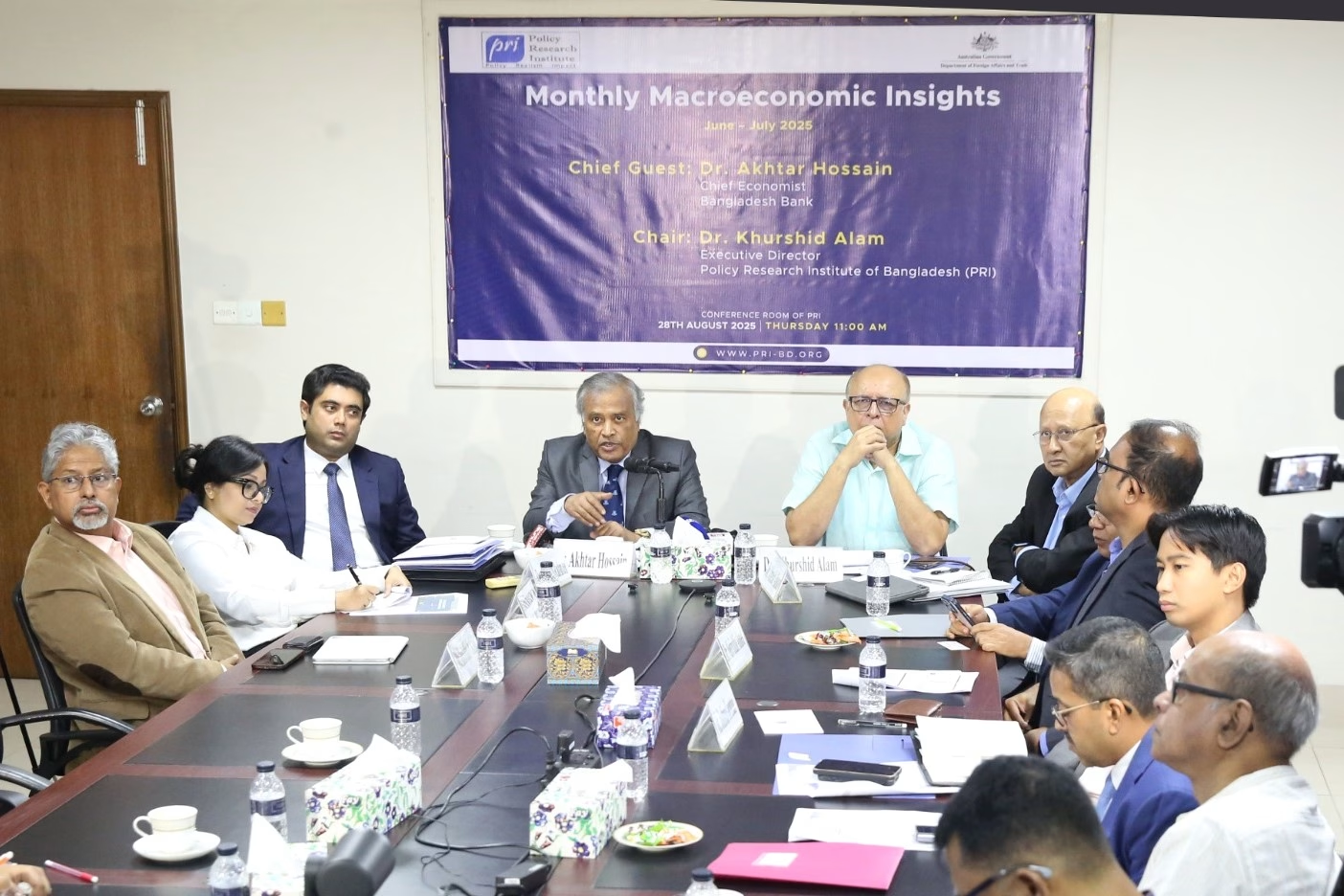Mohammad Akhtar Hossain, Chief Economist of Bangladesh Bank, highlighted the need for a rule-based monetary policy to keep inflation at 4% in the long term.
During the “Bangladesh Monthly Macroeconomic Insights” seminar hosted by the Policy Research Institute (PRI) on Thursday he addressed inflation concerns and said the current inflation stands at 8–9%, the government’s goal is to reduce it to 3–4%.
However, he emphasized that this short-term reduction alone would not suffice.
“We need to implement a rule-based monetary policy to ensure long-term inflation stability at around 4%,” Akhtar Hossain stated, outlining the importance of establishing a clear, consistent framework for monetary decisions.
A rule-based approach ensures predictability of interest rates and money supply in line with the inflation trend, allowing businesses and consumers to plan confidently for the future. It also manages inflation expectations effectively, keeping the economy stable even when external shocks occur.
While inflation management took center stage, Akhtar Hossain also pointed to the crucial need for foreign investment to drive economic growth. “Domestic savings alone cannot fund the large-scale investments needed for our economy,” he remarked.
The country’s reliance on foreign investment, he argued, underscores the importance of creating a business-friendly environment and maintaining political stability.
In a similar vein, Ashikur Rahman, Principal Economist at PRI, addressed the broader issue of stagnating investments.
He highlighted that public and private investments in Bangladesh have been sluggish in recent years. Citing IMF data, Rahman stated that public investment is projected to fall to 6.4% of GDP in FY25, with a modest increase anticipated in the following fiscal year.
The stagnation, Rahman said, is driven by deep-rooted structural issues, including energy supply shortages, logistical challenges, and political uncertainty.
“These structural constraints must be addressed for Bangladesh to unlock new investment opportunities,” he explained.
The conversation also shifted to private bank mergers. Rahman acknowledged the ongoing lobbying against these mergers, citing their political complexity.
“Merging banks is politically difficult, presenting significant challenges,” he said.
Akhtar Hossain added that the cost for merging banks could reach up to Tk 30,000 crore, with funds likely sourced through bonds and foreign assistance. He stressed that while mergers are necessary for the banking sector’s health, they will require substantial financial resources and political will.
As the seminar progressed, Anwar-ul Alam Chowdhury Parvez, President of the Bangladesh Chamber of Industries (BCI), raised concerns over the country’s readiness for LDC graduation. “Are we ready yet?” he asked, pointing out Bangladesh’s heavy reliance on a single export product. He warned that LDC graduation would result in the removal of import tariffs, which would significantly impact local industries. “We must diversify our economy before graduation to avoid the potential risks,” Parvez cautioned.
In response, Akhtar Hossain reiterated that foreign investment remains crucial for economic growth. He emphasized that improving the business environment and ensuring political stability are not just the responsibility of Bangladesh Bank, but require collective efforts from all sectors.
The seminar, chaired by PRI Executive Director Khurshid Alam, was attended by economists, business leaders, and policymakers, all of whom discussed key economic challenges. Dr Ahmad Ahsan, Director of PRI, highlighted the growing unemployment crisis, noting that nearly 3 million people, mostly women, left employment in 2024, leading to an increase in poverty.
The event concluded with Dr Khurshid Alam urging collective action to tackle Bangladesh’s economic challenges, including inflation, investment stagnation, and the readiness for LDC graduation. The seminar underscored the need for a comprehensive approach to address these issues and ensure long-term economic stability and growth.


